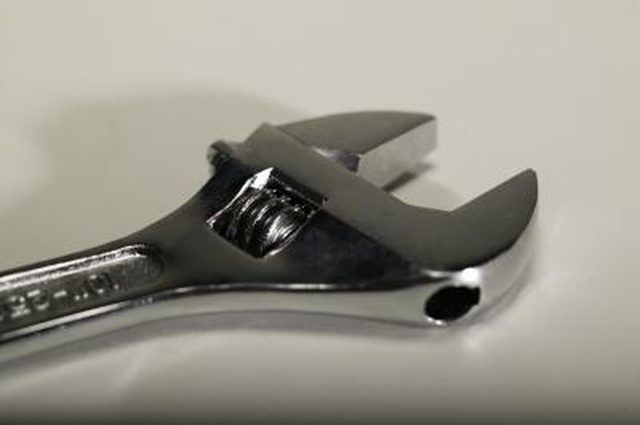Bulbs
Flower Basics
Flower Beds & Specialty Gardens
Flower Garden
Garden Furniture
Garden Gnomes
Garden Seeds
Garden Sheds
Garden Statues
Garden Tools & Supplies
Gardening Basics
Green & Organic
Groundcovers & Vines
Growing Annuals
Growing Basil
Growing Beans
Growing Berries
Growing Blueberries
Growing Cactus
Growing Corn
Growing Cotton
Growing Edibles
Growing Flowers
Growing Garlic
Growing Grapes
Growing Grass
Growing Herbs
Growing Jasmine
Growing Mint
Growing Mushrooms
Orchids
Growing Peanuts
Growing Perennials
Growing Plants
Growing Rosemary
Growing Roses
Growing Strawberries
Growing Sunflowers
Growing Thyme
Growing Tomatoes
Growing Tulips
Growing Vegetables
Herb Basics
Herb Garden
Indoor Growing
Landscaping Basics
Landscaping Patios
Landscaping Plants
Landscaping Shrubs
Landscaping Trees
Landscaping Walks & Pathways
Lawn Basics
Lawn Maintenance
Lawn Mowers
Lawn Ornaments
Lawn Planting
Lawn Tools
Outdoor Growing
Overall Landscape Planning
Pests, Weeds & Problems
Plant Basics
Rock Garden
Rose Garden
Shrubs
Soil
Specialty Gardens
Trees
Vegetable Garden
Yard Maintenance
How to Change Snapper Oil
How to Change Snapper Oil. Snapper brand lawn mowers use Briggs & Stratton engines to power the cutting blade in the mower's deck. To keep the mower performing as expected, regular maintenance needs to be performed. That maintenance includes oil changes. The oil should be changed after the first five hours of use and then annually thereafter...

Snapper brand lawn mowers use Briggs & Stratton engines to power the cutting blade in the mower's deck. To keep the mower performing as expected, regular maintenance needs to be performed. That maintenance includes oil changes. The oil should be changed after the first five hours of use and then annually thereafter unless the mower is used excessively. The oil change should be performed while the engine is warm--not hot--from use.
Things You'll Need
Drain pan
Mechanic's tools
Shop rags
Quart of oil
Wheel blocks
Operator's manual for your mower's engine
Push Mower
Turn the engine off. The engine needs to be turned off, but still warm from use.
Disconnect the spark plug wire by grasping the wire cap and pulling it with gentle firmness to remove the cap off the end of the spark plug. Tuck the spark plug wire aside so it does not come into contact with the end of the spark plug.
Tip the lawn mower up on two wheels just far enough to gain access to the underside of the deck. Position the drain pan under the bottom of the engine, then remove the oil drain plug from the bottom of the motor near the drive shaft with an Allen wrench, a crescent wrench, a hex wrench or a ratchet handle depending on the drain plug style installed in your Snapper mower.
Lower the mower onto the drain pan so the mower is sitting level. Allow the oil to completely drain from the engine.
Tip the lawn mower up on two wheels just far enough to gain access to the underside of the deck. Re-install the oil drain plug, then tighten it. Wipe oil from around the plug with a shop rag. Remove the drain pan, then set the mower on all four wheels on a level surface.
Wipe around the oil filler cap to remove dirt and foreign material, then grasp the filler cap and unscrew it.
Pour about half a quart of oil into the oil filler tube. Wipe the dipstick on the oil filler cap, then install the cap. Remove the cap and check the dipstick for the oil level. Add more oil if the oil level shown on the dipstick is too low. Add the oil sparingly and recheck with the dipstick until the oil is full.
Install the oil filler cap and hand tighten it. Reconnect the spark plug wire.
Riding Mower
Turn the engine off. The engine needs to be turned off, but still warm from use.
Place wooden blocks under the front wheels of the mower to lift the front end.
Wipe the oil filler cap with a shop rag, then remove the cap.
Position the drain pan under the oil drain plug on the rear of the engine, then open or remove the drain plug depending on the style of drain plug in your mower's engine. (Remove the square bolt style plug with a crescent wrench. Rotate counterclockwise, then pull out to open the captive style drain plug.)
Allow the oil to completely drain from the engine.
Reinstall the drain plug. (Reinstall the square bolt style plug with a crescent wrench. Push in, then rotate clockwise to close the captive style drain plug.) Wipe away any spilled oil with a shop rag.
Remove the blocks from under the front wheels. Set the mower on a level surface.
Consult your engine's operator manual for the oil capacity. Add the specified amount of oil to the engine through the oil filler tube. Wipe the dipstick on the oil filler cap, then install the cap. Remove the cap and check the dipstick for the oil level. Add more oil if the oil level shown on the dipstick is too low. Add the oil sparingly and recheck with the dipstick until the oil is full.
Install the oil filler cap and hand tighten it.
Tips & Warnings
For best performance, the manufacturer recommends using Briggs & Stratton warranty certified oils. But any high quality, detergent oil can be used if it meets the SF, SG, SH, SJ or higher classification of service.
Use 5W-30 oil if the seasonal temperatures in your area are below 40 degrees Fahrenheit. Use 10W-30 oil if seasonal temperatures are between 0 degrees and 100 degrees Fahrenheit. Use SAE 30 oil if the seasonal temperatures do not get below 40 degrees Fahrenheit. Synthetic 5W-30 oil can be used for all temperature ranges.
Used oil is considered hazardous waste and must be disposed in accordance with used oil collection regulations in your area. Do not dispose of used oil in the household trash.
Do not use additives in the engine oil. Do not overfill the oil.